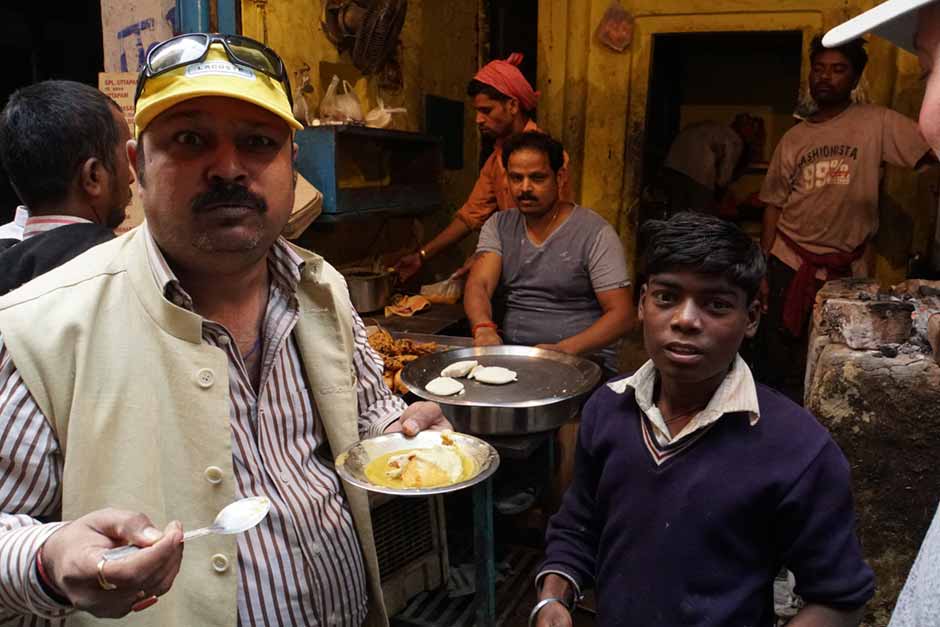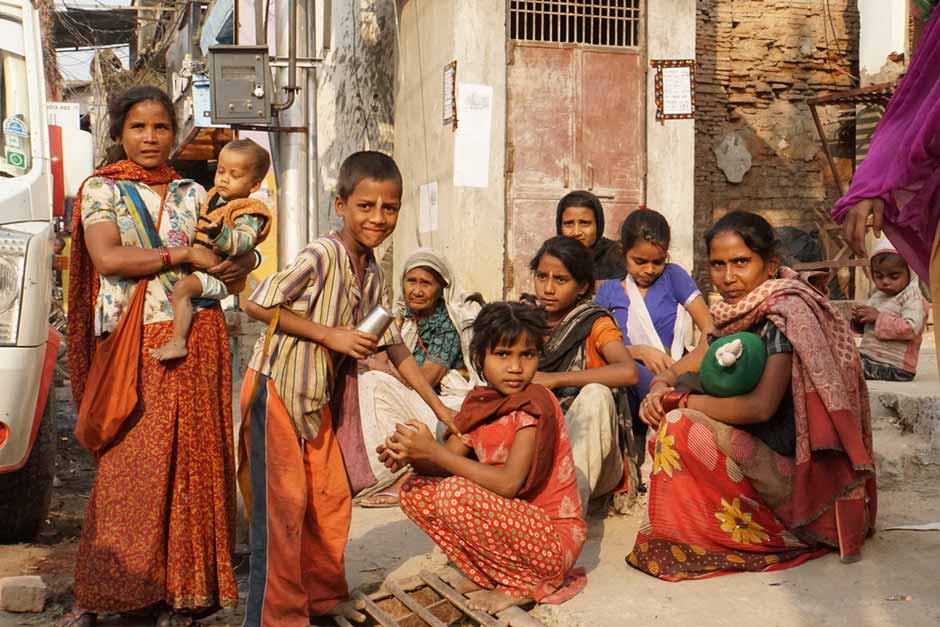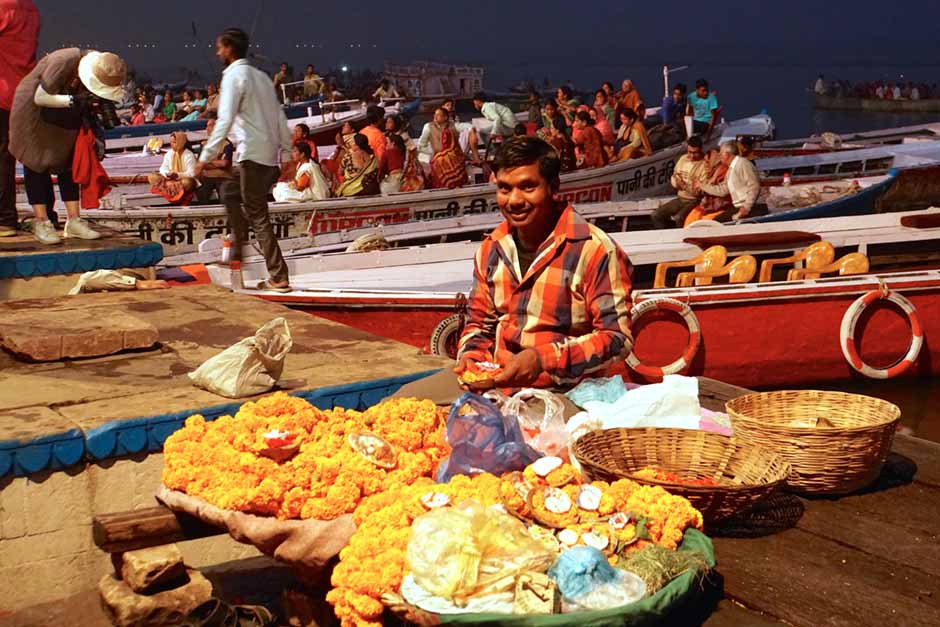
Photo credit: Gerry Feehan
Taj Mahal and the Ganges
This is the 2nd in a 4-part series on India
The Taj Mahal in Agra, India was commissioned in 1632 by the Mughal emperor Shah Jahan in memory of his favourite wife Mumtaz Mahal. Constructed of ivory marble inlaid with semi-precious stones, the Taj Mahal is described as the world’s most perfect building. The Taj does not disappoint.
The grand mausoleum is best viewed in the early morning light, but some important foreign politico was in town so the grounds were closed to us plebeians. We had to view the edifice from Agra Fort, which lies across the Yamuna River. Still, the ancient site in the hazy distance was stunning, with its four tall minarets framing the gigantic domed tomb. In 1658, after a succession battle, Shah Jahan’s son had his father imprisoned in the Fort. The elder Shah was forced to live out his existence with a distant, tantalizing, maddening view of his beloved wife’s final resting place.
The Taj Mahal grounds re-opened to the great unwashed later that afternoon – affording us the opportunity to avoid the morning crowd. As the sun set, we were able to quietly enjoy this architectural wonder with an intimate gathering of… about 10,000 souls. Did I mention India has a lot of people? (see Part 1 of the series.)
Every morning, before he could open his mouth to explain where we were going and what we’d see, eat and do that day, we’d greet our guide Anoop Singhal with a preemptive, “What’s the scoop, Anoop?” Then he’d regale us with the remarkable things we were to consume – visually and gastronomically – that day.

And throughout the adventure, with ceremonial kirpan rattling by his side, driver Devinder Singh navigated us safely through the byways of Rajasthan and Uttar Pradesh, his horn a constant presence, firmly announcing our arrival in every hamlet, village and town. When we flew to Varanasi to visit the sacred waters of the Ganges, Singh Ji drove through the night, met us at the airport and safely delivered us to our luxurious accommodation.
It was on the short drive into Varanasi that we saw our first corpse.
It is the desire of every devout Hindu to be cremated along the banks of the Ganges River, ashes then spread into the sacred water. Such a fortuitous departure from life enhances the deceased’s opportunity to be transported to heaven and escape the cycle of reincarnation, rebirth.
What we had seen on the way into town was a body, brightly wrapped in funerary attire, drawn in an open cart and bound for a wooden funeral pyre.
Late that afternoon, after navigating Varanasi’s warren-like alleyways and descending the stone steps of Manikarnika Ghat to the riverbank, we rowed quietly out into the soft Ganges current. Orange flames danced from a score of burning pyres, each mimicking the brilliant Indian sunset.

Downstream, supplicants released floating offerings of lit candles set in yellow marigolds, while men and women – pilgrims from all over India – stepped into the water to cleanse themselves and sip the holy elixir.

Despite encouragement from the locals we did not partake in the ritual of drinking directly from the blessed Ganges. A Canadian doctor I met on a scenic point overlooking the river warned that to do so was to invite, “the 30 day, 30 pound diet.”
As darkness descended we drifted silently, watching a growing multitude of funerary blazes illuminate the shore. The effect was ethereal, apocalyptic.
In the morning the mood at breakfast was somber. Our time with Mr. Singh and our wonderful guide Anoop was over. We were headed to Mumbai to begin the next leg of our journey. Before we left for the airport, Anoop Ji surprised us with a private yoga session in the garden of the Taj Gateway, our fabulous Varanasi hotel.
After a lot of “ohms”, some deep breathing and much stretching, the yogi insisted we finish the session with a laugh – literally. So, we all forced a grin that morphed to a chuckle and eventually became a contagious guffaw. Soon the whole group was howling with a genuine, fall on your yoga mat, belly laugh.
The mood had swung and we were all smiles as we boarded the plane for Mumbai.
Next time: the slums of Mumbai.
Travel Tips
If you go: Explore India from Vancouver B.C., www.exploreindia.ca, capably and professionally handled all aspects of our private month-long tour – air and land travel, hotels, meals, guides, drivers, entrance fees and activities – for one all-inclusive price.
